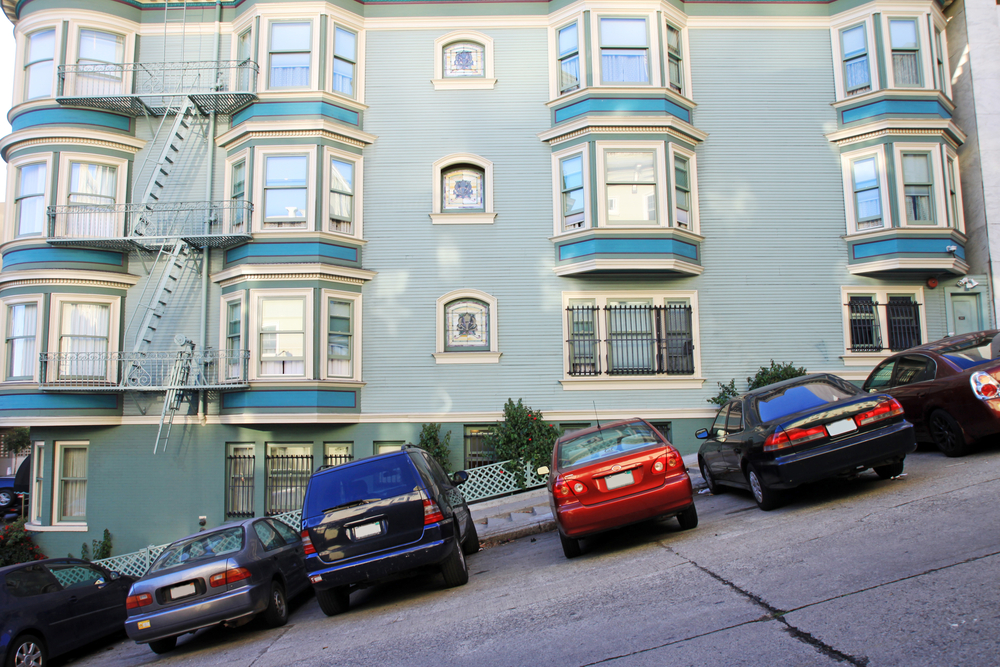
Imagine you and your family are living comfortably in a San Francisco apartment. The rent is pretty high, but you’re doing well enough for yourself in one of the most expensive cities in the country. Then one day, however, your landlord informs you that he’s converting the building into condominiums. You’re told that if you can’t afford the new purchase price for your unit, you and your family have to move, making it very difficult for you to find a new and affordable place to live.
Thankfully, San Francisco passed a law to try to prevent this situation from happening. The city recognized that property owners might want to capitalize on the opportunity to convert their rental properties into condos, but displacing residents would only add to the city’s already-severe number of unhoused people. Their compromise was a policy called the Expedited Conversion Program (ECP). The ECP allows property owners to convert their buildings to condos, but it requires them to provide a lifetime rent-stabilized lease to current tenants that can’t or don’t want to buy their home. In other words, your family would get to stay and pay similar rates even if the building converted to condos around you.
Unsurprisingly, some landlords were not happy with this requirement. Some may have hoped that condo conversion would have been an excuse to evict tenants they didn’t like. Others may have felt it diminished just how much money they could make by selling the condos for a far higher price than the rental amount before it was converted.
Eventually, the conservative Pacific Legal Foundation (PLF) challenged the ECP in a case called Pakdel v. City and County of San Francisco. PLF’s clients, the Pakdels, had begun the process of converting a property they owned into condos, but they later asked to either be excused from granting a lease to a current tenant or be compensated by San Francisco for the money lost. The city refused to grant any exception, and the lawsuit argues that the refusal violated the Pakdels’ constitutional rights to manage their own property without government intrusion.
The case has bounced around federal courts for several years. After the Ninth Circuit dismissed the case, PLF appealed to the Supreme Court. The Supreme Court ruled last year that the case required further consideration, sending it back down to the lower courts and suggesting, among other things, that the recent Cedar Point Nursery v. Hassid be incorporated into the new analysis.
If the Cedar Point Nursery case rings a bell, that’s because it was a significant 2021 ruling that limited the ability of union organizers to meet with farm workers during their lunch breaks, as had been allowed by California law. The owners of those farms argued, and the Supreme Court agreed, that they had the right to keep union organizers off their property.
So what does an anti-union ruling have to do with tenants’ rights? PLF took the Court’s suggestion to heart and is now arguing that the same property rights apply in both cases. If farm owners can block union organizers from coming onto their property, the argument goes, so too should building owners be able to remove tenants who are not purchasing the condos they now live in. Unfortunately, this conflation of property rights makes little sense and does not fairly represent the rights of the tenants.
That’s why Alliance for Justice has proudly joined Democracy Forward and a number of tenants’ rights groups in filing an amicus brief defending the ECP from this legal attack. There is a significant difference, the brief argues, between third-party individuals like union organizers coming onto a property and tenants, who property owners have already voluntarily allowed to take up residence on the property. In other words, it doesn’t intrude on property rights to protect the people already residing on the property in the same way it does to let outsiders visit the property. San Francisco’s ECP requirement that these leases be offered to current tenants is “a necessary tool for regulating the local housing market and preventing tenant displacement,” the brief states.
Nothing could be more important to social welfare than ensuring that families have a place to live. Eviction moratoriums were vital throughout the COVID-19 pandemic to make sure families stayed safe and sheltered even as the economy was in crisis, even if the Supreme Court was willing to ultimately block them on procedural grounds.
The situation in San Francisco is no different. Property owners’ desire to make more money off their property should not come at the expense of families losing their homes. Expanding property rights as PLF proposes would only help the wealthy and powerful at the expense of many others simply trying to put a roof over their heads.
Zack Ford is the Press Secretary at Alliance for Justice.

